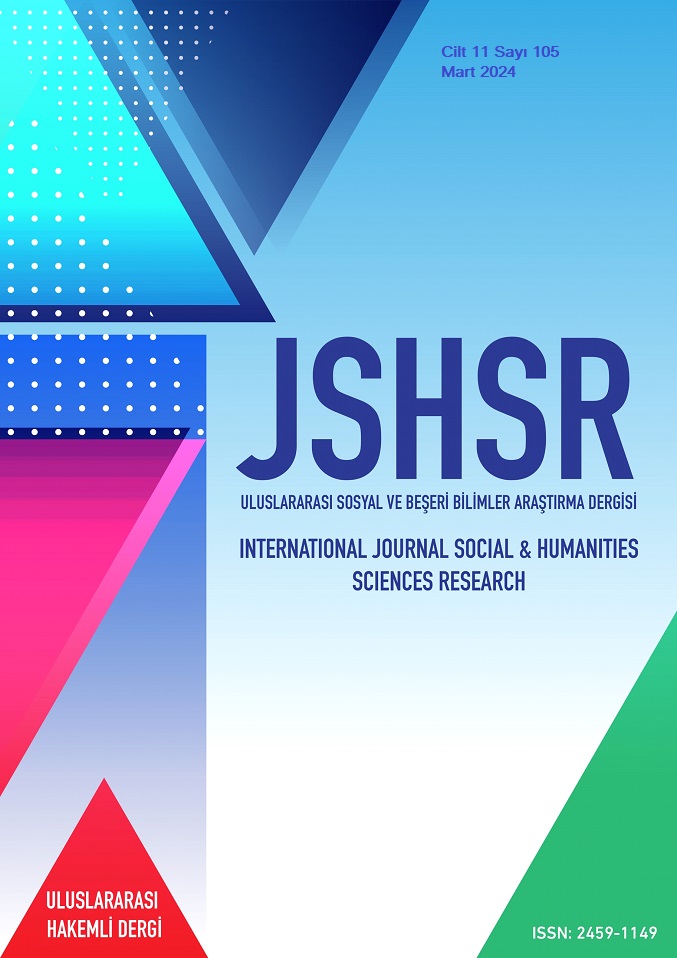Examining Teachers' Professional Motivation Levels
DOI:
https://doi.org/10.5281/zenodo.10927028Keywords:
Öğretmen, eğitim, motivasyon.Abstract
Motivation is a fundamental research topic in many branches of social sciences, especially in the fields of education, business, psychology and social studies. Research shows that motivation plays a critical role in understanding individual and group behavior. The concept of motivation, which is discussed in the field of management to increase the job performance of employees, is discussed in the field of education to increase the academic success and desire to work of students and teachers. The teaching profession differs from many other professions in terms of its psychological and sociological dynamics. Interaction with students, colleagues, families and other education stakeholders constitutes one of the core competencies of the teaching profession. Teacher motivation is vital to educational success and student achievement. In this context, a comprehensive examination of the factors affecting teacher motivation is a critical step to improving the quality of education. The study used a screening model to determine teachers' professional motivation levels. The population of the research consists of a group of 278 teachers working in different schools in Diyarbakır. "The Teacher Professional Motivation Scale" was used to determine the opinions of actively working teachers regarding their professional motivation. In general, teachers have a positive perspective in areas such as the quality of the physical environment in their schools, the level of appreciation of the work done, and student achievement levels. However, there are opportunities for improvement in some areas, such as the level of professional cooperation and solidarity of teachers and the level of support provided by parents to the school. In addition to the prominent positive aspects, teachers' perceptions of access to new technologies and their evaluations of workload are remarkable. At these points, providing support and resources for teachers more effectively can contribute to increasing the love and respect they feel for their profession and their overall professional satisfaction.
References
Adams, J. S. (1965). Inequity in social exchange. In Advances in experimental social psychology (Vol. 2, pp. 267-299). Academic Press.
Ambrose, M. L., & Kulik, C. T. (1999). Old friends, new faces: Motivation research in the 1990s. Journal of management, 25(3), 231-292.
Collie, R. J., Shapka, J. D., & Perry, N. E. (2012). School climate and social–emotional learning: Predicting teacher stress, job satisfaction, and teaching efficacy. Journal of educational psychology, 104(4), 1189.
Deci, E. L., & Ryan, R. M. (2008). Self-determination theory: A macrotheory of human motivation, development, and health. Canadian psychology/Psychologie canadienne, 49(3), 182-185.
Epstein, J. L. (2002). School, family, and community partnerships: Preparing educators and improving schools. Adolescence-San Dıego-, 37, 435-435.
Gagné, M., & Deci, E. L. (2005). Self‐determination theory and work motivation. Journal of Organizational behavior, 26(4), 331-362.
Guskey, T. R. (2002). Professional development and teacher change. Teachers and teaching, 8(3), 381-391.
Hanushek, E. A. (2011). The economic value of higher teacher quality. Economics of Education review, 30(3), 466-479.
Hoy, W. K., & Miskel, C. G. (1991). Educational administration: Theory, research, and practice. (No Title).
Ingersoll, R. M., & Strong, M. (2011). The impact of induction and mentoring programs for beginning teachers: A critical review of the research. Review of educational research, 81(2), 201-233.
Jensen, B. (2009). What's the pay off?. Teacher Magazine, 21(1), 24-28.
Karabağ Köse, E., Karataş, E., Küçükçene, M. ve Taş, A. (2021). Öğretmen mesleki motivasyonu ölçeği geçerlik ve güvenirlik çalışması: çevrimiçi ve kâğıt kalem uygulamalarının karşılaştırılması. Pamukkale Üniversitesi Eğitim Fakültesi Dergisi, 51, 479-498.
Klassen, R. M., Perry, N. E., & Frenzel, A. C. (2012). Teachers' relatedness with students: An underemphasized component of teachers' basic psychological needs. Journal of educational psychology, 104(1), 150.
Latham, G. P., & Pinder, C. C. (2005). Work motivation theory and research at the dawn of the twenty-first century. Annu. Rev. Psychol., 56, 485-516.
Locke, E. A., & Latham, G. P. (2002). Building a practically useful theory of goal setting and task motivation: A 35-year odyssey. American psychologist, 57(9), 705-717.
Miner, J. B. (2005). Organizational Behavior: Essential theories of motivation and leadership. one (Vol. 1). Me Sharpe.
Ryan, R. M., & Deci, E. L. (2000). Self-determination theory and the facilitation of intrinsic motivation, social development, and well-being. American psychologist, 55(1), 68.
Skaalvik, E. M., & Skaalvik, S. (2014). Teacher self-efficacy and perceived autonomy: Relations with teacher engagement, job satisfaction, and emotional exhaustion. Psychological reports, 114(1), 68-77.
Tschannen-Moran, M., & Hoy, A. W. (2007). The differential antecedents of self-efficacy beliefs of novice and experienced teachers. Teaching and teacher Education, 23(6), 944-956.
Tuncer, M. (2020). Nicel Araştırma Desenleri. Oral, B. ve Çoban, A. (Ed.) Kuramdan Uygulamaya Eğitimde Bilimsel Araştırma Yöntemleri içinde (s. 205-228). Ankara: Pegem Akademi.
Vallerand, R. J., & Ratelle, C. F. (2002). Intrinsic and extrinsic motivation: a hierarchical model. In E. L. Deci & R. M. Ryan (Eds.), Handbook of self-determination research (pp. 37–63). University of Rochester Press.
Downloads
Published
How to Cite
Issue
Section
License
Copyright (c) 2024 INTERNATIONAL JOURNAL OF SOCIAL HUMANITIES SCIENCES RESEARCH

This work is licensed under a Creative Commons Attribution 4.0 International License.


